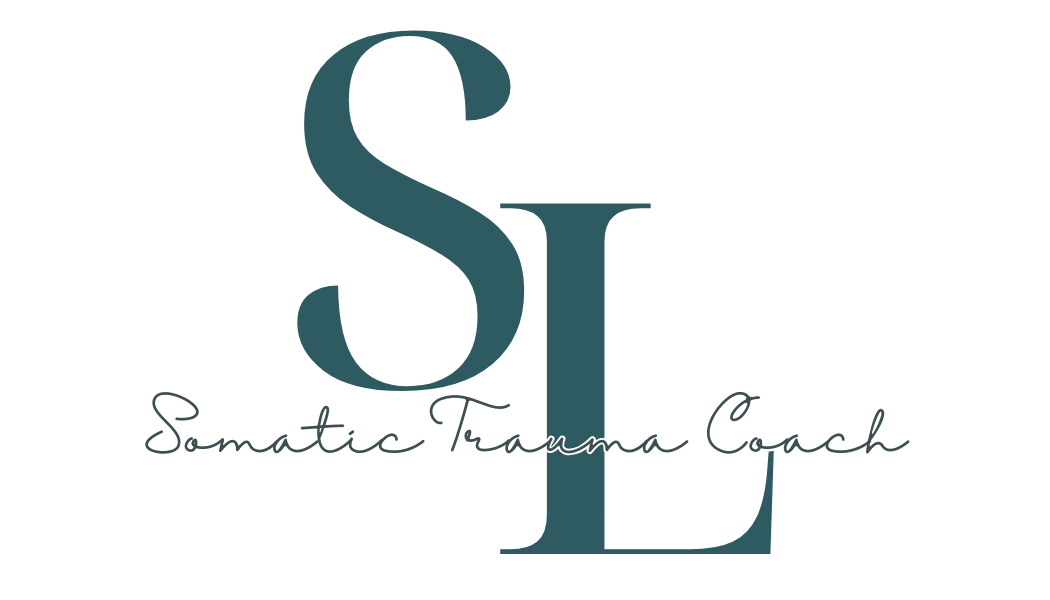Trauma is a silent yet powerful force that can significantly influence our lives, especially as moms who often take on the role of caregivers for our families. Somatic trauma-informed coaching is a holistic approach designed to help individuals who are coping with the lingering effects of trauma that have crept into their daily existence. It’s crucial to debunk the myths surrounding this cutting-edge coaching method and shed light on how it can provide real, sustained relief to those who have encountered pain and adversity. Here, we dive deep into the intricacies of somatic trauma coaching, dispelling common myths and highlighting its numerous benefits for those who are struggling to manage the repercussions of their trauma.
THE ESSENTIALS OF SOMATIC TRAUMA-INFORMED COACHING
Somatic trauma-informed coaching is a form of therapeutic support that emphasizes the significance of body awareness in the healing process. It recognizes that trauma is not just an event that has occurred; it is an affliction that lodges itself within the body and morphs into daily habits and reactions. Informed by the principles of somatic experiencing and other progressive trauma therapy techniques, this coaching approach aims to guide individuals toward a more balanced and harmonious relationship with both their bodies and the world around them.
The practice focuses on ensuring that individuals safely develop skills to self-regulate their body’s responses to overwhelming or distressing situations. By becoming more attuned to the body’s signals, clients can process their trauma in a way that brings about genuine healing and transformation. Somatic trauma-informed coaching marries the best of modern psychology with a holistic understanding of the body-mind system, offering a multifaceted and impactful recovery process tailored to the needs of mothers.
THE BENEFITS OF SOMATIC TRAUMA-INFORMED COACHING
RECONNECTING WITH THE BODY AND ITS SENSATIONS
One of the most powerful aspects of somatic trauma-informed coaching is its capacity to reintroduce individuals to their bodily experience. For many who have undergone trauma, this element of their lives has been overshadowed by fear, pain, and stress. By gently guiding clients to reclaim their physical presence and sensations, coaches create a fertile ground for emotional restoration and growth.
Reconnecting with the body is not just about being more in tune with one’s physicality; it’s about forging a path to self-knowledge and self-compassion. Through somatic exploration exercises, one can learn to interpret their bodies’ messages more effectively, paving the way for a more authentic and less inhibited life.
SUPPORTING EMOTIONAL REGULATION AND RESILIENCE
Trauma can profoundly disrupt our emotional equilibrium, leading to volatility and unpredictable reactions to life’s challenges. Somatic trauma-informed coaching is an anchor through the storms of strong feelings and emotions. By facilitating a deeper understanding of the link between body and emotion, these sessions empower individuals to regulate their responses and, by extension, enhance their capacity for resilience.
Strong emotional regulation is vital for creating the groundwork to process trauma in manageable pieces, without becoming overwhelmed. With the steady guidance of a somatic trauma coach, people can develop valuable emotional skills that not only benefit them but also radiate outward to their families and communities.
FACILITATING TRAUMA RESOLUTION AND HEALING
The ultimate goal of somatic trauma-informed coaching is to assist in resolving trauma rather than just coping with it. The modality creates a safe, caring, and nurturing space for clients to explore their past experiences, reframe their narratives, and integrate these events in a way that empowers rather than debilitates them.
By working through the lingering effects of trauma step by step, a somatic trauma coach helps to release the hold that these events have on a person’s life. This is true healing—a comprehensive endeavor that doesn’t just mask the symptoms but dismantles the underlying causes.
OFFERING TOOLS TO MANAGE STRESS AND ANXIETY
Stress and anxiety can be relentless companions for individuals who have experienced trauma. Somatic trauma-informed coaching equips clients with an arsenal of tools and techniques to confront and reduce these symptoms. From mindfulness practices to breathing exercises, somatic coaching provides practical strategies that are immediately applicable in daily life.
These tools are not just stopgaps for symptoms; they are instruments of change that can transform the way individuals approach their entire existence. By instilling these practices, coaches empower their clients to regain a sense of control and mastery over their lives.
ADDRESSING MISCONCEPTIONS AND BARRIERS
MISCONCEPTION THAT TRAUMA ISN’T AFFECTING DAILY LIFE
One of the most entrenched myths about trauma is the belief that it can be compartmentalized or that it eventually fades away. In reality, trauma is insidious and can influence every aspect of a person’s life, especially a mother whose role is multifaceted and demanding. Somatic trauma coaching helps to reveal the covert ways in which trauma manifests in daily habits, thoughts, and interactions, making it impossible to overlook or minimize its impact.
FEAR OF ADDRESSING TRAUMA WILL BE TOO PAINFUL
It’s normal to feel apprehensive about revisiting past traumatic experiences, but somatic trauma-informed coaching does so in a way that is carefully paced and respectful of each individual’s limits. The process is challenging but never overwhelming, and the focus always remains on the client’s well-being and readiness to delve into these difficult but transformative territories.
BELIEF THAT THEY CAN MANAGE ON THEIR OWN WITHOUT PROFESSIONAL HELP
While self-help and self-reflection are valuable, trauma often necessitates professional intervention. Somatic trauma coaching is not a sign of weakness; it’s a testament to a person’s strength and resilience in seeking methods that will truly bring about change. By partnering with a skilled coach, clients can expedite their healing journey and ensure they are accessing the support they need.
CONCERN ABOUT THE COST OF COACHING SERVICES
The notion that somatic trauma-informed coaching is financially out of reach for the average person is an understandable concern. However, many coaches offer a range of payment options, and some programs may even be partially or fully covered by certain health insurance plans. The cost of coaching services should be viewed through the lens of investment in one’s future and overall well-being—a decision that holds immeasurable value.
UNCERTAINTY ABOUT THE PROGRAM’S COMPATIBILITY WITH PERSONAL BELIEFS OR FAMILY IMPACT
Somatic trauma-informed coaching is a practice that respects and supports individuals from all backgrounds and belief systems. Its effectiveness is not contingent on aligning with specific religious or spiritual precepts. As for family impact, the positive changes that individuals experience through coaching are felt by the entire family unit, leading to more harmonious relationships and a healthier home environment.
BREAKING THE CYCLE: HEALING TRAUMA PREVENTS ITS TRANSMISSION TO FUTURE GENERATIONS
Healing trauma is not just about individual well-being; its effects reverberate through generations. Unaddressed trauma can be unconsciously passed down, often manifesting as anxiety, depression, or dysfunctional behavior patterns in children. By actively engaging in trauma recovery, parents not only reclaim their own lives but also protect their children from the impact of inherited trauma. Somatic trauma-informed coaching enables them to break this cycle, fostering healthier and happier future generations. Thus, the healing process becomes a powerful legacy of resilience and emotional well-being.
DOUBTS ABOUT HEALING FROM TRAUMA OR CHANGING CIRCUMSTANCES
The thought of healing from trauma or believing that one can only be well if external circumstances change is a common obstacle. Somatic trauma coaching, by focusing on internal processes and resilience, allows for healing regardless of the state of external circumstances. It’s a powerful message of hope and empowerment that can drive substantial change and, in turn, impact the world around an individual.
CONCLUSION
Somatic trauma-informed coaching offers a solution for those who have weathered the storm of trauma but still feel its effects. By delving into the myths and benefits of this innovative approach, we hope to have provided clarity and inspiration for those exploring their options in the journey toward healing. The transformation that is possible with the guidance of a somatic trauma coach is not only real but also within reach for anyone who seeks to reclaim their joy, their peace, and their lives.
If you’re someone who has experienced trauma, remember that you’re not alone, and help is available. Somatic trauma-informed coaching can be a key that unlocks a future free from the chains of the past. It is an acknowledgment of your worth, an investment in your potential, and a proclamation that healing is not only possible but essential for the vibrant and fulfilling life you deserve. Don’t let the misconceptions or barriers deter you from the possibilities that somatic trauma coaching can offer. Embrace the journey—not as a victim of your story, but as an author of your triumphant tale.

